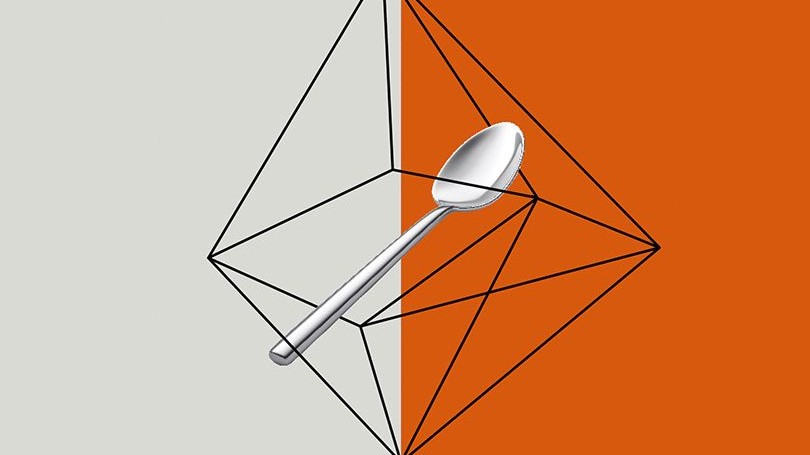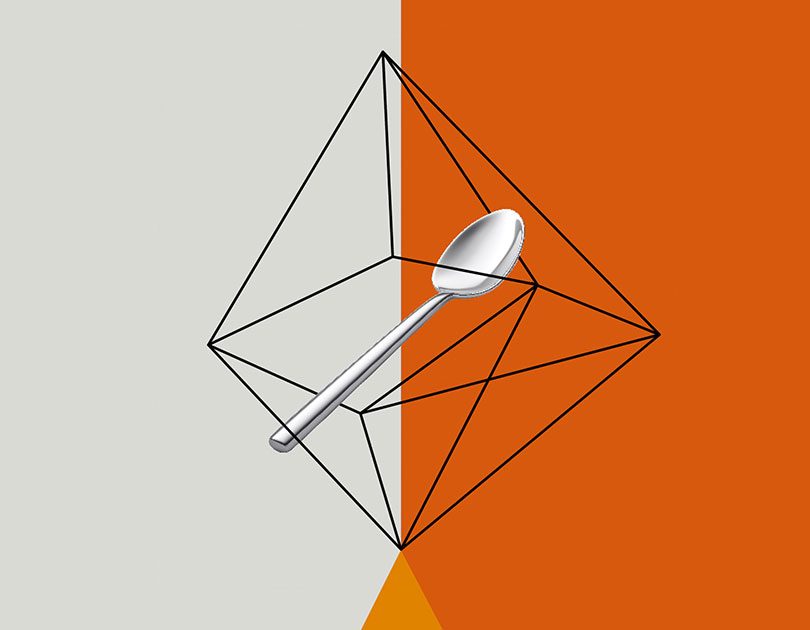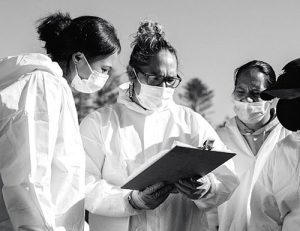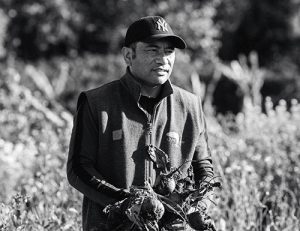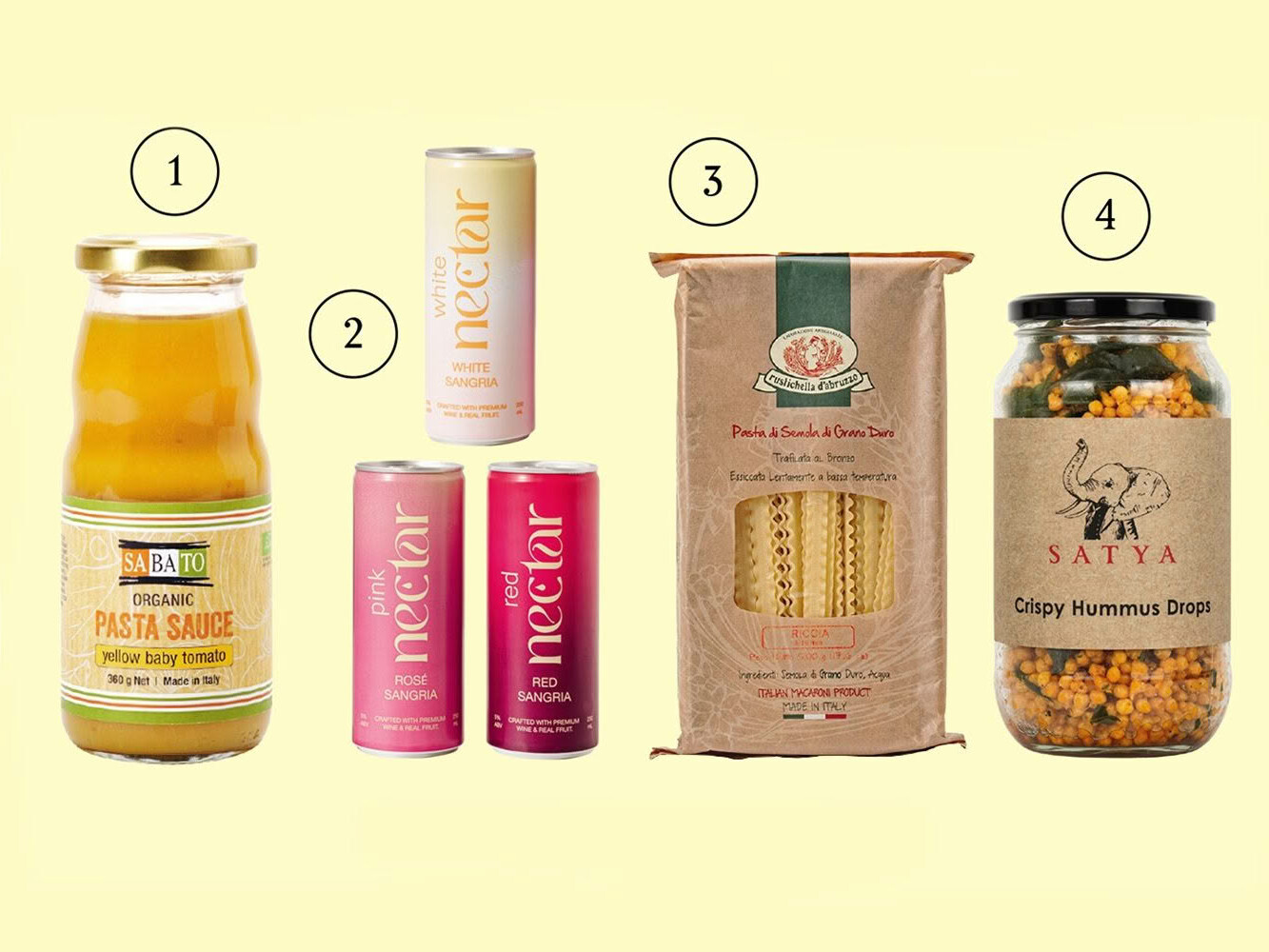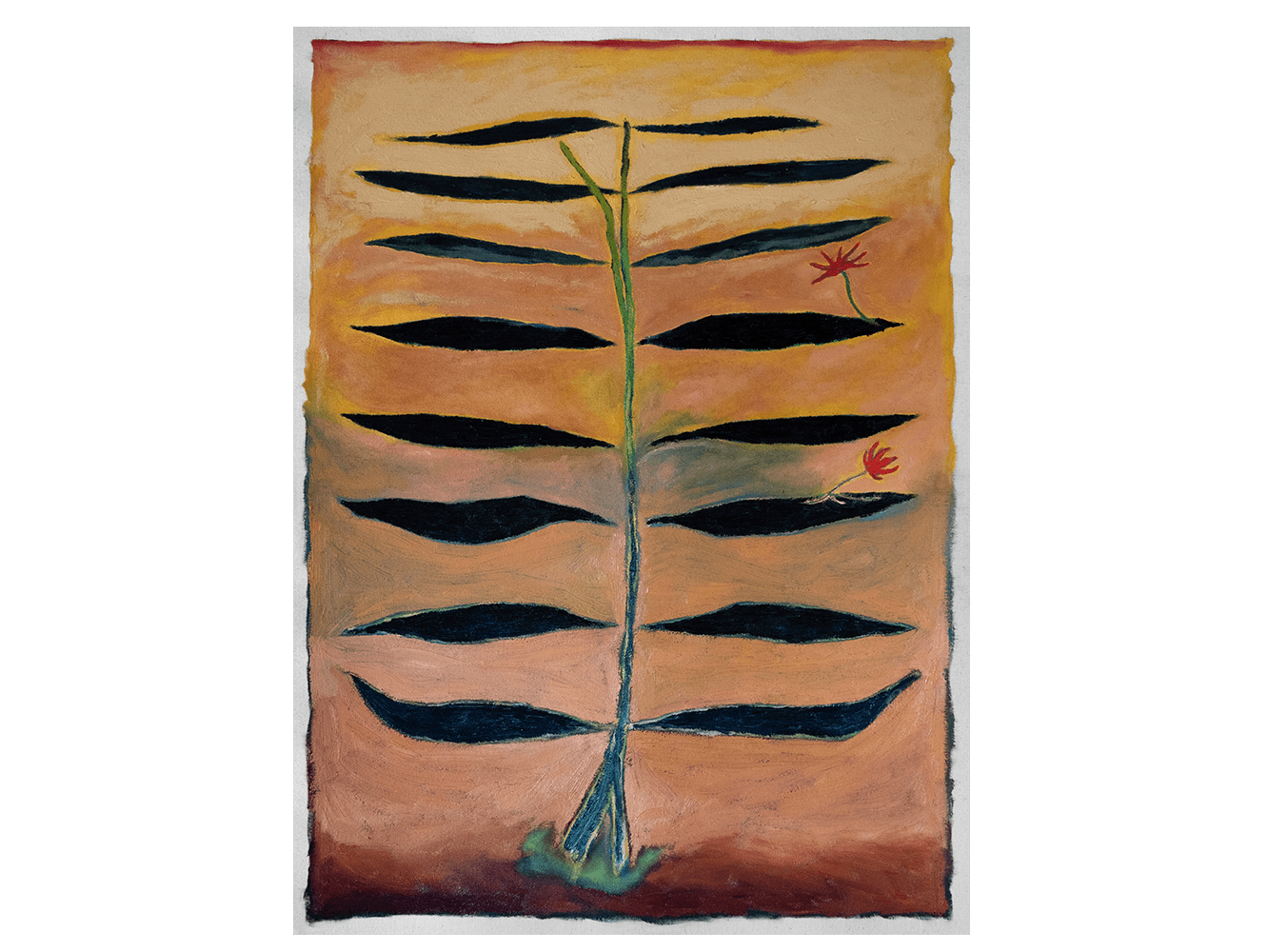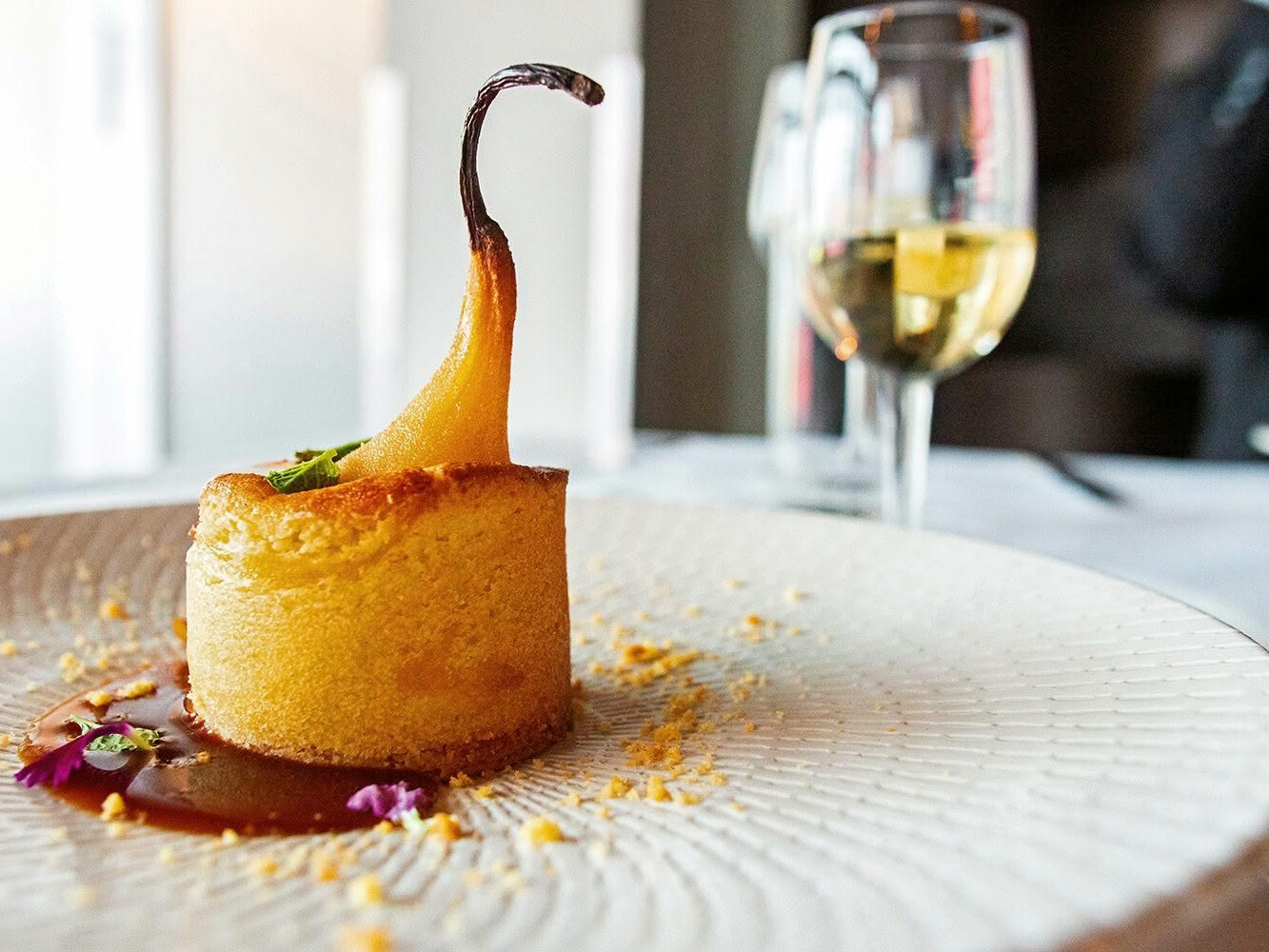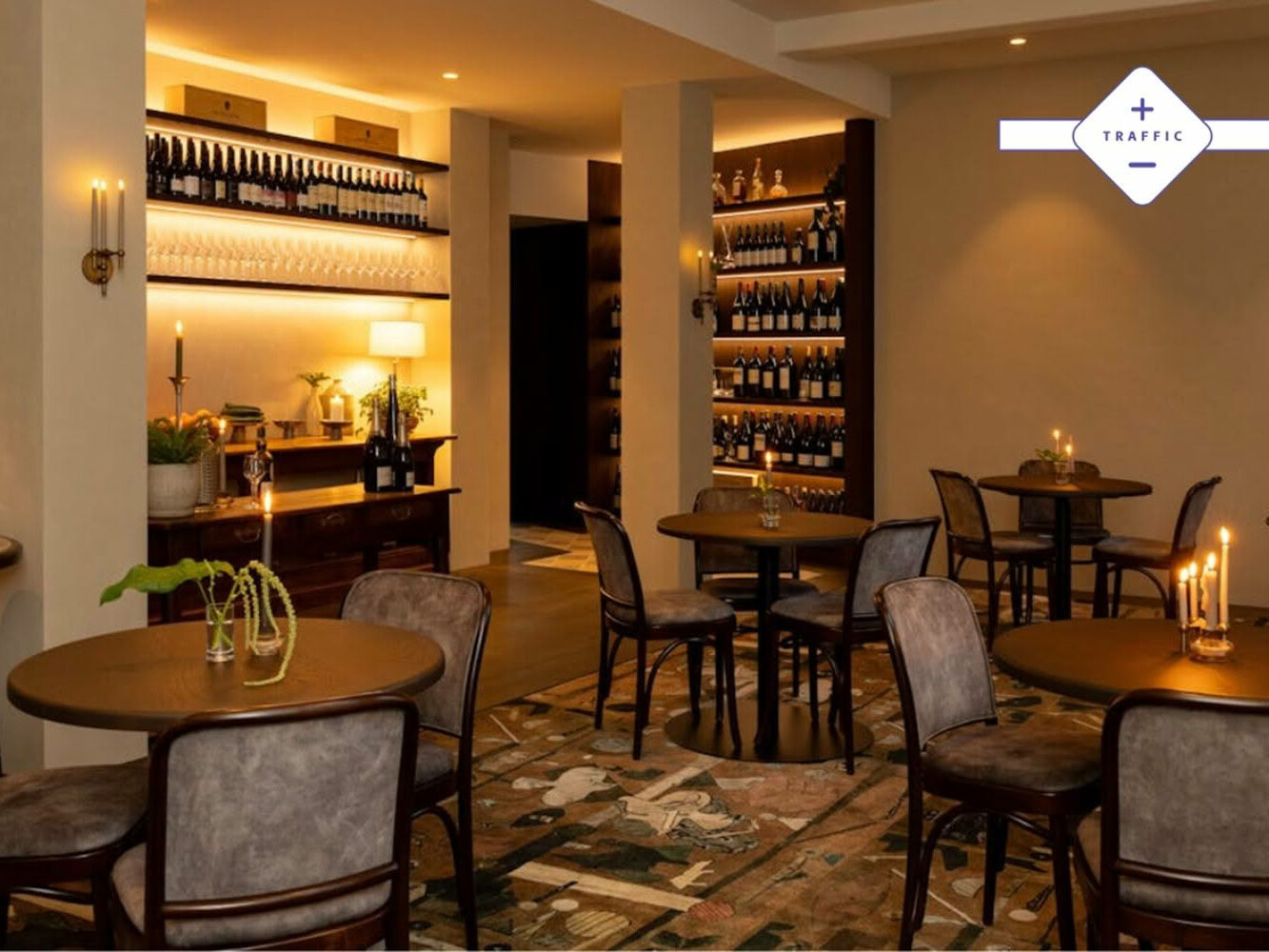For the first time, the Cuisine Good Food Awards will include a category championing changemakers in the sector: those people who see a better way of doing things; those prepared to act to solve the problems faced by society; the disrupters who take a stand and make an impact. Hillary Eaton shares some of their stories.
They say that the only constant you can expect from life is change. If nothing else, life during the pandemic has shown us just how true that is. But there’s the change that’s thrust upon us and then there is the change for which we wake up in the morning, that which we’re driven to create. For Cuisine’s inaugural Champions for Change, their lives are dedicated to the latter. We want to tell you of the people who are shaping all facets of New Zealand’s food ways for a better tomorrow for everyone involved, from fishers to chefs to policymakers. We’re proud to lift up the causes and voices of some of New Zealand’s most impactful changemakers.
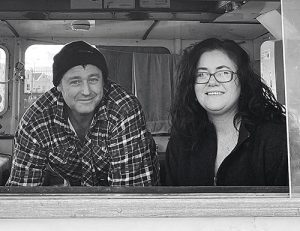 SARAH & KARL WARR
SARAH & KARL WARR
BETTER FISHING
THE SEA-CHANGERS
For Sarah and Karl Warr, loving the fishing industry means honestly looking at its faults in order to see a better future. Stunned by the high juvenile mortality rate and small-fish bycatch found in standard nets, the couple founded Better Fishing. “Factories we were fishing into were asking us to ‘highgrade’ at sea, which is really just a fancy word for dumping, and that, for us, was a definite no,” Sarah says.
Unsatisfied by existing solutions to this industry-wide problem, the pair developed the rigid aperture cage – a cage that seriously reduces the catch of juvenile fish and enables them to swim free at depth, making for more responsible practices which safeguard future healthy harvests.
The Warrs have also led the way in revolutionising transparency in the fishing industry, installing a camera and live-streaming their daily fishing operation. As their sights continue to shift to areas of the industry that require innovation, their next mission is to help change New Zealand’s consumption of fish species into one that has longevity, with sustained biodiversity in mind. As Sarah explains, there is an ever-increasing number of people on the planet who need to be fed, so we need to start eating those more humble, more plentiful species from lower on the food chain – anchovies, sardines, pilchards and sea greens.
While the couple is proud of the strides they’ve been able to make in the industry, they are quick to call out to those who supported them, particularly restaurants who took a chance on them in the early years. “They have easier, cheaper options but they walk with us, together, for you, for our future, for the future.” dailycatch.co
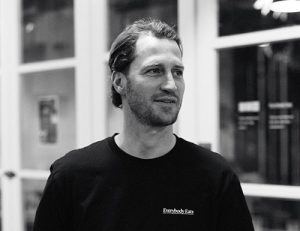 NICK LOOSELY
NICK LOOSELY
EVERYBODY EATS
THE NO-HUNGER/ NO-WASTE WARRIOR
Nick Loosely, founder of Everybody Eats, began with one simple mission: to make sure bellies were full, while landfills stayed empty. Devising a pay-as-you-feel model for a volunteer-run restaurant serving a set, 3-course menu to both those in support and those in need, Everybody Eats has done tremendous work to hit two very difficult birds with one stone: to combat the issue of hunger by using what would otherwise become food waste, all under one restaurant roof.
“The pay-as-you-feel model is inclusive,” Nick explains. “It allows people who can afford to pay for a meal to do so, and perhaps contribute to future meals, while giving more vulnerable people an opportunity to enjoy a dignified experience without feeling any guilt or stigma.”
Having both groups – those in need and those there to support – eating under one roof provides an opportunity for community and kōrero, is unique in the charity space and perhaps one of the most innovative elements of Everybody Eats. “It’s quite uncomfortable sometimes,” Nick says. “But by making it comfortable for all sorts of people to eat with us, magic is created when everyone comes together.”
With three locations across New Zealand and another Auckland location planned for early 2022, we’ve never been more excited to see a restaurant group expand. everybodyeats.nz
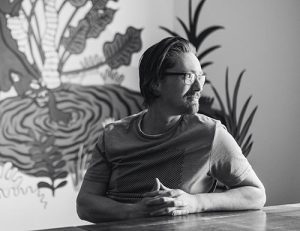 ASHER BOOTE
ASHER BOOTE
HILLSIDE AND DAISY
THE RESTAURATEUR
Asher Boote of Wellington restaurants Hillside and Daisy has long been a proprietor of change in the restaurant industry. From the choice to go meatless at Hillside, to his ongoing efforts to create a more sustainable restaurant, Asher has championed a better environment for both the planet and those within his restaurants.
“We have worked hard over a long period to achieve things that are not all that glamorous,” Asher says. “For example, Hillside now only ever uses one rubbish bag per week and often that’s nowhere near full.” Instead, Hillside’s food scraps, old menus, used napkins and paper towels are put into a compost pile which is used to feed the garden and which, in turn, provides produce for the restaurants. Why be glamorous when you can be commendable?
The same thoughtfulness is seen in the creation of a work environment that coaxes out the best in staff. Mental health is openly discussed and worked on, while hours are managed in efforts to give staff proper work/life balance.
“We’ve always been a really agile business,” Asher explains. “But that’s because we built it in a way that allows it to adjust as life and the world changes. There have been huge amounts of people who have criticised the changes we’ve made over the years, but those voices are pretty quickly cancelled out by the positive moves we’ve made and the great people who support us in doing so.” hillsidekitchen.co.nz
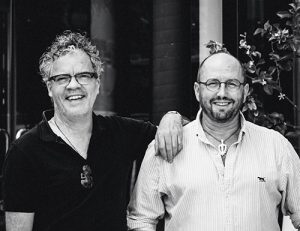 PETER GORDON & ALASTAIR CARRUTHERS
PETER GORDON & ALASTAIR CARRUTHERS
HOMELAND
THE AMBASSADORS
With the opening of Homeland, Peter Gordon and Alastair Carruthers have created something unique in New Zealand: a food embassy to champion sustainable, tradable kai, showcasing Pacific and New Zealand producers by way of a cooking-school-meets-restaurant.
“We know we’ve helped many smaller producers reach market,” Peter says. “We are also proud of our fortnightly Community Days – a Tuesday where different migrant communities or groups in need get to come and cook with me, swap stories, share knowledge and then sit down for lunch and have a kai.”
Thanks to the pair, producers that have made a notable amount of their business in export markets are now being introduced to the domestic market in new ways. “With closed borders, it is increasingly difficult to reach offshore markets,” Peter explains. “And many exporters haven’t previously been selling into retail in New Zealand.”
Thanks to Homeland, there have never been more avenues for New Zealand to experience a connection to producers that may have not otherwise graced the table. homelandnz.com
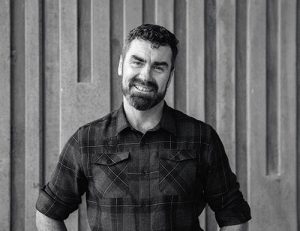 DON SHEPHERD
DON SHEPHERD
CITIZEN COLLECTIVE
THE FOOD UPCYCLER
It has never been more important to consider the lifespan of what we consume, especially in the context of food waste. With 29 million loaves of bread wasted each year in New Zealand alone, bread is one of the most glaring examples of our collective propensity to waste. It’s this starting statistic that pushed Don Shepherd to found Citizen Collective, a company dedicated to upcycling food into something sustainably delicious.
“The linear concept needed disrupting,” Don explains of the lifespan most consumer goods take: from production to consumer to landfill. What originally began with making beer from surplus supermarket bread has now transformed into a circular concept: bread into beer into bread again.
But it’s not just beer – Citizen Collective tackles other food upcycling projects, partnering with consumer goods brands such as Sawmill Brewery, Lost and Found Wines and Morningside Cider, resulting in inventive tipples such as a piquette made from leftover wine grapes and a cherry cider that saves 20 cherries per can from landfills.
“The more that we sell, the more that we’re able to save,” Don says of Citizen Collective. “Convenience is key and taste is essential. We want to encourage and enable people to make a choice for good.”
Partnered with one of New Zealand’s top chefs, Ben Bayly, Citizen Collective is just getting started with upcycling surplus food into a new, tasty version of itself. With several new areas of food waste on their radar, you can expect to see big things in their near future. citizen.co.nz
 IAN PROUDFOOT
IAN PROUDFOOT
KPMG’S GLOBAL HEAD OF AGRIBUSINESS
THE POLICYMAKER
For KPMG’s global head of agribusiness, Ian Proudfoot, getting New Zealand to carbon neutrality isn’t a challenge, it’s an opportunity. “The best that other sectors can aspire to is zero: New Zealand agriculture can become climate positive. As opposed to being ‘less bad,’ agriculture can actually be part of the solution.”
It’s just one piece of the puzzle being worked on by the Aotearoa Circle, a partnership of public and private sector leaders committed to reversing the decline of New Zealand’s natural resources and pursuing sustainable prosperity. Proudfoot and others are involved in the Mana Kai project, an initiative looking across all aspects of New Zealand food ways, from producers and growers to eaters, to develop a New Zealand food roadmap which will enhance the New Zealand food system.
With a population of 5 million people and enough food exported each year to feed 40 million, there should be no reason for New Zealanders to experience the level of food insecurity we currently do. With the Mana Kai project, the hope is that there won’t have to be a choice between economic stability from exports and a country where everyone is fed and healthy.
The framework is reflective of a Māori view of our food systems, with the land, people and environment inherently interconnected. As an ongoing kōrero, the next phase of the Mana Kai project will be to listen, but not just to experts. “We want to hear from everyone,” Ian says. “We want to hear from you.” theaotearoacircle.nz/mana-kai
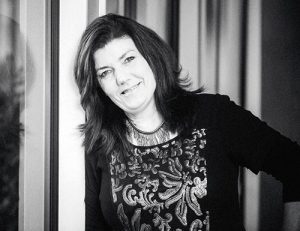 LINDY NELSON
LINDY NELSON
SAFER FARMS
THE FARMERS’ ADVOCATE
If there is someone championing a culture of care for those who work in New Zealand’s largest industry, it’s Lindy Nelson. “[People that work in the agriculture industry] carry the largest weight, in terms of the economy, for all of New Zealand,” Lindy explains. “But we have the highest harm rate in the country. Seventeen people lose their lives on farms each year.”
Things like leadership fatigue, long-term stress and exposure to agrichemicals are just a few of the very complex issues that Lindy and her team have worked to address.
“The biggest challenge for food producers is the complexity of the system they’re now working with, as we grapple with climate change and our obligations around the environment,” she explains.
Through her work with Safer Farms, Lindy focusses on expanding the conversation surrounding agriculture beyond that of compliance to creating a concrete strategy for an industry that looks after the worker’s mental and physical health: a strategy by the sector and for the sector; a strategy that looks after those who feed all of New Zealand, quite literally from the ground up. saferfarms.org.nz
LIONEL & VAL HOTENE
PAPATŪĀNUKU KŌKIRI MARAE
THE COMMUNITY LEADERS
Community leaders the calibre of Lionel and Val Hotene are rarities. Heading the efforts of the Papatūānuku Kōkiri Marae in Māngere – an inner-city marae dedicated to fostering and upholding tikanga, strong community relationships and a hectare of lush community garden farmed in accordance with Te Waka Kai Ora – the pair are the beating heart of the community.
“Entrepreneurial avenues are great support for our marae in that particular part of Tāmaki Makaurau,” Lionel tells us. You may have had the opportunity to try some of their thoughtfully farmed produce without even knowing it. After setting up its community gardening project over 30 years ago, Papatūānuku Kōkiri Marae not only helps to feed people in the community, but also provides an economic stronghold through selling its vegetables to markets such as Grey Lynn’s Sunday market and Homeland restaurant. It’s so much more than just learning to work the land. It’s educating an entire generation (and those to come) with a view to a better future, strongly based in building knowledge of self-sustainability through ethical agriculture tied to community support. papatuanukukokirimarae.org
SEE MORE FROM CUISINE
Design File / Jessica Crowe / stylist, painter / Whangamatā
Though you may not know Jessica Crowe’s name, if you are a regular…
Traffic July / August 2025
Josh and Helen Emett continue the elegance and success of Gilt, with…

